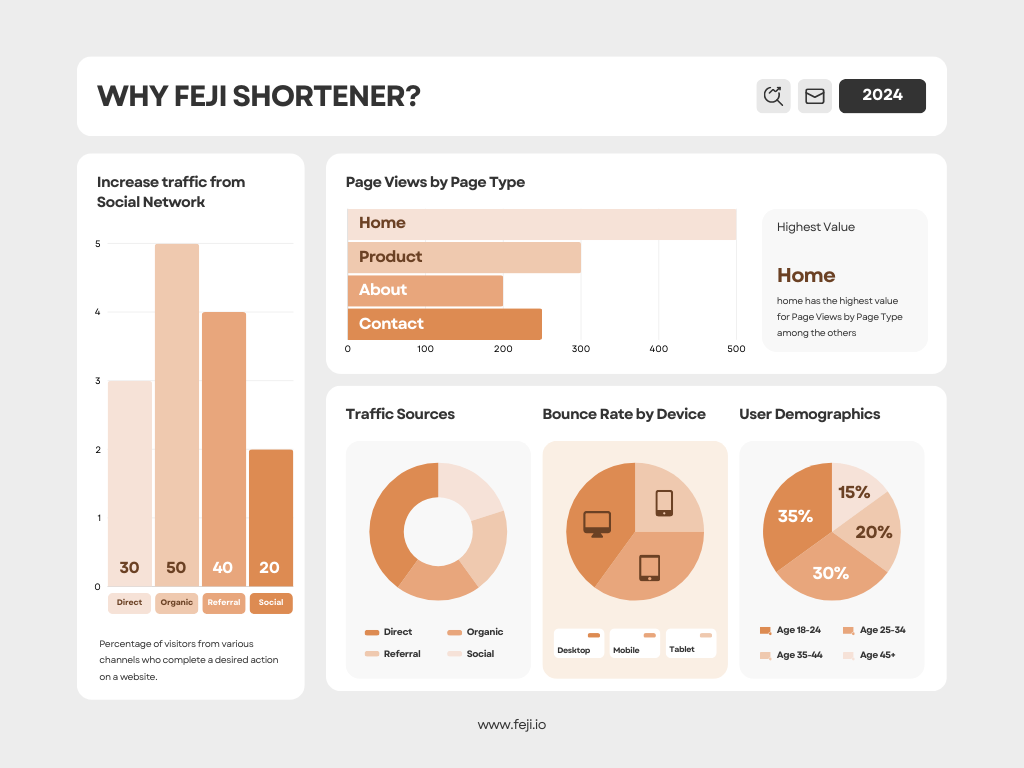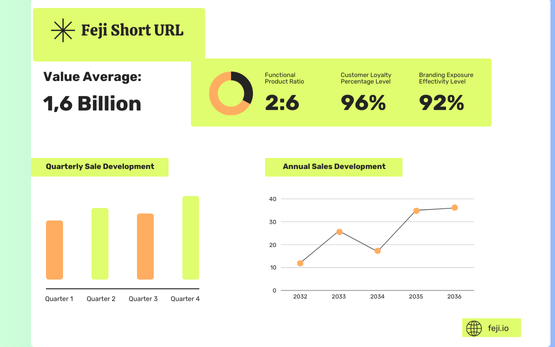In today's digital age, managing and sharing links efficiently is crucial for both businesses and individuals. URL shorteners, also known as link shorteners, offer a convenient way to transform long, unwieldy URLs into compact, manageable links. This article will delve into the benefits of using a URL shortener, its impact on SEO, and best practices for leveraging short links effectively.
What is a URL Shortener?
A URL shortener is an online tool that converts long URLs into shorter, more manageable links. For instance, a URL like 'https://example.com/blog-post-about-url-shorteners' can be shortened to something like 'https://fji.li/hilt2d`. These shortened URLs are easier to share, especially on platforms with character limits like Twitter.
Benefits of Using a URL Shortener

1. Enhanced User Experience
One of the primary advantages of using a URL shortener is the improved user experience. Short links are easier to read, remember, and share. This is particularly important on social media platforms where space is limited.
2. Improved Aesthetics
Short links look cleaner and more professional, which can enhance the appearance of your posts and communications. Long URLs can appear cluttered and overwhelming, especially in printed materials or when spoken aloud.
3. Tracking and Analytics
Most URL shorteners offer analytics features that allow you to track the performance of your links. This includes data on the number of clicks, geographic location of the clicks, and the devices used. Such insights are invaluable for understanding your audience and optimizing your marketing strategies.
4. Increased Click-Through Rates
Short links tend to have higher click-through rates (CTR) compared to long URLs. This is because they appear more trustworthy and are easier to click on, especially on mobile devices.
5. Customizable Links
Many URL shorteners offer the option to create custom short links. This means you can brand your links, making them more recognizable and memorable. For example, instead of `https://short.ly/abcd1234`, you could have `https://short.ly/yourbrand`.
Impact on SEO
1. URL Shorteners and Link Equity
One common concern is whether using a URL shortener affects link equity. Link equity, or "link juice," refers to the value passed from one page to another via hyperlinks. Reputable URL shorteners use 301 redirects, which preserve the link equity of the original URL.
2. Improved Social Media Sharing
Short links are particularly beneficial for social media sharing, which indirectly impacts SEO. When users share your content more frequently due to the convenience of short links, it can lead to increased traffic and higher engagement metrics, both of which are positive signals for search engines.
3. Analytics and SEO
The analytics provided by URL shorteners can help you understand which content is performing well. This allows you to refine your SEO strategies by focusing on topics and formats that resonate most with your audience.
Best Practices for Using URL Shorteners
1. Choose a Reliable URL Shortener
Not all URL shorteners are created equal. Choose a reliable service that offers robust analytics, custom short link options, and strong security features. Popular options include Bitly, TinyURL, and Rebrandly.
2. Use Custom Short Links
Whenever possible, create custom short links that reflect your brand or the content of the link. This not only makes the link more memorable but also enhances your brand recognition.
3. Monitor Link Performance
Regularly review the analytics provided by your URL shortener. Pay attention to metrics such as click-through rates, geographic data, and device usage. This information can inform your marketing strategies and content creation.
4. Avoid Over-Shortening
While short links are useful, avoid over-shortening. Using a URL shortener for every single link can appear spammy and may reduce trust among your audience. Use short links strategically for key content and campaigns.
5. Be Mindful of Expiry Dates
Some URL shorteners offer links that expire after a certain period. Be mindful of this, especially if you’re using the links for evergreen content. Choose a service that offers permanent links or make sure to renew them as needed.
Real-World Applications of URL Shorteners
1. Social Media Marketing
In social media marketing, space is often limited, making URL shorteners essential. They allow marketers to share links to blog posts, products, or landing pages without using up valuable character count.
2. Email Marketing
In email marketing, long URLs can look cluttered and unprofessional. Short links keep your emails clean and make it easier for recipients to click on your links.
3. Print Media
For print media, short links are easier to include in flyers, brochures, and business cards. They are simpler to type into a browser and more likely to be used by potential customers.
4. QR Codes
Short links can be easily converted into QR codes, which are used in various offline marketing strategies. This makes it easy for customers to scan and visit your website without typing in a long URL.
A URL shortener is a powerful tool that enhances the user experience, improves the aesthetics of your links, and provides valuable analytics for your marketing strategies. By understanding the benefits and best practices of using short links, you can effectively leverage this tool to boost your online presence and improve your SEO efforts.
Whether you're a marketer looking to optimize your social media strategy, a business owner aiming to track link performance, or an individual wanting to share content more efficiently, a URL shortener can be a valuable addition to your digital toolkit. Choose a reliable URL shortener, create custom short links, and monitor their performance to maximize the benefits of this versatile tool.

 Vietnamese
Vietnamese









Nguyen Hoai Thanh
Nguyen Hoai Thanh is the Founder and CEO of Metaconex. With 12 years of experience in developing websites, applications and digital media, Nguyen Hoai Thanh has many stories and experiences of success to share.